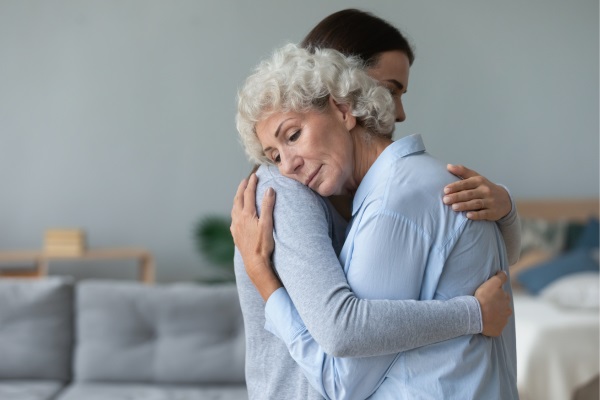Grieving the Many Losses in Life
July 29, 2023

Loss is often thought of with regards to the loss of a loved one due to death, but there are many types of loss that one experiences throughout their lifetime that need to be identified and grieved to be free of its painful hold on us. This can be a difficult process since our death-denying society does not always honor such losses and tends to minimize the effect on our psyche, but the importance of doing so cannot be underestimated.
The many losses we can experience include, but are not limited to:
- loss of an important person due to separation, rejection, abandonment, or a geographical move.
- loss of a part of ourselves through an illness, accident, job, loss of function or lifestyle.
- loss of our childhood because of poor parenting, getting needs met, transitional objects, gain or loss of siblings, body changes.
- the loss of adult development through transitions like menopause and aging.
- and the loss of external objects like money, property, sentimental objects, or collections.
For an older adult who has lived long enough to experience most of these losses, the most significant one can be the loss of functionality on either a cognitive or/and physical basis. These losses greatly impact quality of life and the ability to remain independent.
Consider the failing vision for someone who has played the piano for 50 years and can no longer experience the fulfilment it has given, or the loss of mobility causing you to be confined to your home, or the loss of cognition to drive a car. Or the loss of friends and family that the older adult outlives, leaving them feeling alone in the world without the vital connections and support they have always known. Depression and a feeling of hopelessness is a common response to these losses.
So, what can be done? First, one must identify and acknowledge these losses to honor and grieve them. Once this is done, finding ways to compensate wherever possible is key. Purchasing large print sheet music and books for failing eyesight, listening to books on tape, using a cane or a walker for failing mobility, utilizing ride services to get places one can no longer drive to, etc. Sadly, some losses cannot be compensated for. In all cases, acceptance is vital. To come to a place of acceptance, one must grieve the loss. So, what does grieving look like?
First, one needs to allow themselves to feel the emotions of shock, denial, anger, despair, and sadness that come with loss. Attempting to deny our feelings will only cause them to show up in other ways that can be detrimental (i.e., illness, mental health issues). Recognize that these emotions will come and go and cycle back for some time. There is no order or time frame for the process of grief.
Don’t allow others to tell you how you should be feeling or behaving. Honor your unique experience. Find tangible ways to honor your losses: make a scrapbook of a loved one, write a poem expressing your feelings, teach others how to do what you were good at, pass on your love and knowledge of music, art, sewing, building, etc., share your memories and record them.
- Give yourself time. Accept your feelings and know that grieving is a process.
- Talk to others. Spend time with friends and family. Stay connected to your support network.
- Take care of yourself; pamper yourself.
- Return to the hobbies and activities you can or find new ones.
- Join a support group.
Find ways to make meaning from your loss. This can take some time but is an important outcome of loss. Mothers who lost children to drunk drivers formed MADD (Mothers Against Drunk Drivers) and advocated for stricter laws against drunk driving to find meaning for their losses. A woman who did not have a healthy childhood growing up with a mentally ill mom found meaning from her loss by becoming a mental health therapist to help others heal from childhood trauma.
Finally, allow loss to enlarge your heart, giving you greater compassion for the suffering of others. This can provide the best meaning of all.
Robin Milner, MA LPCC
Robin is a Care Manager for Elder Options and has a passion to advocate for those who cannot advocate for themselves and provide them with the care and dignity each of us deserve.

